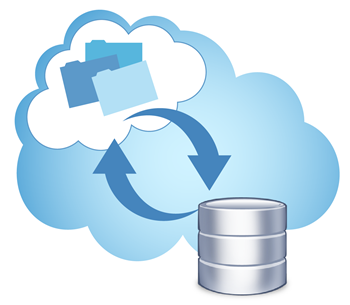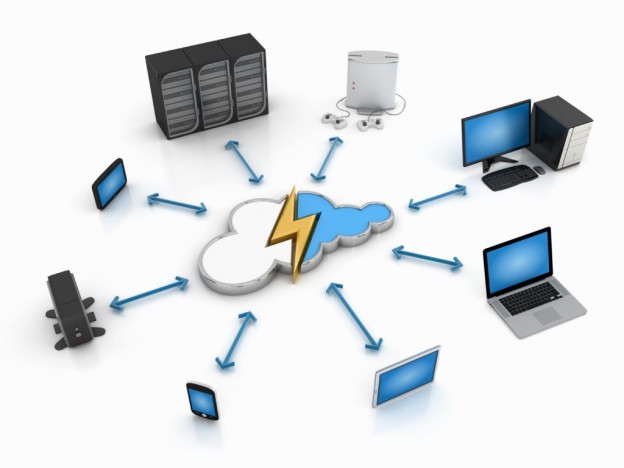While online data storage can provide you with cost-efficiency, there are quite a few associated drawbacks with cloud storage solutions. So, it is important to know which services can change your businesses to cloud storage providers. For small and medium sized businesses, backups and storage is as important as it is for any large corporation. However, it is likely to consume a lot of time and you will also need a lot of manpower to perform these tasks. This explains why it makes sense to outsource these duties to a third party provider. With cloud hosting services coming in, such options are more readily available.
What kinds of cloud storage and backups solutions become necessary for SMBs?
For SMBs, cloud storage services are likely to come under these categories:
– Data archiving services offered by cloud vendors which helps in long-term storage for data that is rarely accessed.
-Data backup solutions for backing up the main data in the cloud.
– Primary storage which refers to the storage space for holding the main copy of data.
– Secondary storage solutions which refers to space for holding replica of the main data.
1.Cloud backup space refers to the storage space which is most extensively used by businesses for storing data. The clients will keep their primary data on-site and back this data up in the cloud through multiple methods. They are charged depending on the number of backups made. These backups will also expire after a certain time period or according to frequency. Making cloud backups is simple and you can use products like the Mozy which can identify data and then write the changed data into a cloud. Creating accounts is also easy and some providers even let you divide the accounts to be managed via a master account.
2.Cloud archiving solutions are very similar to cloud backup solutions, the only difference being that here the data remains permanently or as the client desires. In this environment, the client does not have a copy of data and the provider must provide additional data recovery services for protecting data archives. This data archiving service will depend on content and it will deal with emails or specific files.
 3.Primary storage refers to a setting where clients have direct access to their files which would otherwise be housed in a local storage setting or a file server. These services may be deployed using multiple methods such as web protocols meant to work with this primary data inside the cloud. Companies like CTERA Networks or Twin Strata offer cloud storage services which seem to be local storage systems but actually cache reading-writing of files that are stored in clouds. The cloud storage solutions believe that only a few file are going to be accessed by businesses and once created, such files will be read or written only a few times. So, the gateway will archive such files inside the cloud and keep the files which are frequently needed in the local cache. But, for using such solutions you must predict the demands. When the cache is small, the users may experience greater response times for data retrieval from the cloud.
3.Primary storage refers to a setting where clients have direct access to their files which would otherwise be housed in a local storage setting or a file server. These services may be deployed using multiple methods such as web protocols meant to work with this primary data inside the cloud. Companies like CTERA Networks or Twin Strata offer cloud storage services which seem to be local storage systems but actually cache reading-writing of files that are stored in clouds. The cloud storage solutions believe that only a few file are going to be accessed by businesses and once created, such files will be read or written only a few times. So, the gateway will archive such files inside the cloud and keep the files which are frequently needed in the local cache. But, for using such solutions you must predict the demands. When the cache is small, the users may experience greater response times for data retrieval from the cloud.
4.Secondary storage will offer replicas of primary data instead of a simple backup. For example, the Dropbox is the best known instance of secondary storage. It will replicate client data in a cloud and this can then be accessed through the Internet. Secondary storage services are best suited for businesses keen to share data but not keen to buy dedicated file servers.
What are the pros and cons of cloud backup solutions?
– The main idea behind cloud computing is to offer resources to users so that they do not have to buy costly hardware. The clients are charged according to usage and typically on a monthly basis. The drawback is that it is hard to predict ongoing costs since cost vary depending on the traffic every month. Moreover, unless the services are rightly deployed, customers may get an astronomical bill after a month.
– Secondly, cloud hosting service providers was meant to offer scalability to customers. Clients would be free to scale up and down resources according to demands. They would not have to pay for additional software and hardware costs. When you must deploy storage in a traditional setting, you must plan so that you are prepared for the maximum demand. You cannot scale down resources when demands fall. This is why cloud storage is preferred by SMBs as they get resources in real time.
– While there are no universal standards, and reputed bodies have attempted to standardize protocols, providers have gone ahead with their own protocols and this is why customers face many issues. Switching providers becomes very hard for them because the proprietary structure puts constraints on data mobility. Management tools are also not standardized and each vendor has its own tools with unique settings.
– Cloud storage may also contribute to latency in performance; for primary storage, this is a big problem. Some vendors try to solve this by using caching devices and gateways. This may improve the situation but latency cannot be resolved completely. Caching devices instead bring forth many other problems around data consistency. To get backups you need to look at the time needed for data recovery. Data backups are usually on a short time scale and work for small scale restorations but not for large scale data restorations.
– You must also analyze security traits of cloud storage before you sign up. Data security breaches are usually subject to regulatory penalties and clients must know how the vendor plans to secure its data. The provider must use HTTPS and SSL for securing communications and encrypting data. There are many vendors which do not even offer compensations for data loss events. Even where they claim to have backups, there is usually no guarantee such backups will work eventually when needed. Finally, you must know how your services can be disrupted when a provider shuts down its operations and whether you can easily move to another provider in such a situation.






 Live Chat
Live Chat
